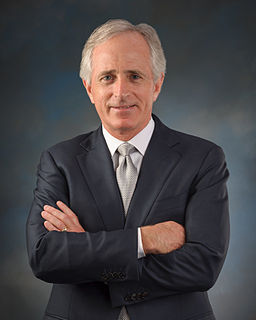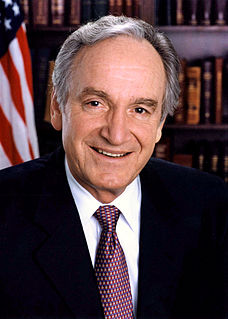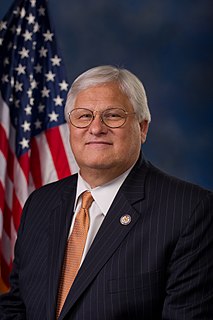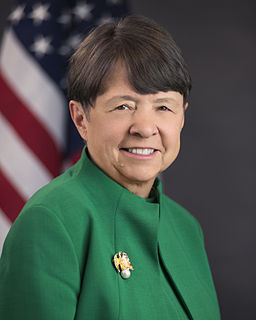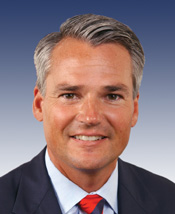A Quote by Bob Corker
The attack on Americans in Benghazi on September 11, 2012 is a stark reminder that our nation must remain vigilant in protecting our citizens from the threat of Al-Qaeda and similar extremist terrorist entities around the world.
Related Quotes
I fully support President Bush's decision to strike Al Qaeda's terrorist network. Now more than ever, we must stand united as a nation and support our President and our military. It is important to remember that this carefully targeted response is not an attack on a religion, nor a nation, but an attack on terrorism. In Congress, we will continue to work with the White House to do what's needed to bring justice to those who committed the heinous and evil attacks of September 11.
I think, in fact, the situation with respect to al Qaeda, to say that, you know, that was a big attack we had on 9/11, but it's not likely again, I just think that's dead wrong. I think the biggest strategic threat the United States faces today is the possibility of another 9/11 with a nuclear weapon or a biological agent of some kind. And I think al Qaeda is out there even as we meet, trying to figure out how to do that.
In terms of the breadth of the threat of Al Qaeda itself - it's not the only terrorist organization, and it works with others as cells around the world in at least 60 countries. You potentially are talking about tens of thousands of followers who can be conscripted into service to carry out a terrorist plot.
Some Pakistanis fought for the Taliban. Pakistani extremist groups provided infrastructural support to Al Qaeda. There was a coming and going of Al Qaeda militants and leaders between Afghanistan and Pakistan for several years. All that has really happened is that Al Qaeda has escaped from Afghanistan come into Pakistan, got in touch with their contacts and friends in these extremist groups, which then provided them with safe houses, cars, and not just in the border areas but also in the cities. Rooting out Al Qaeda in Pakistan now is where the main battle is being fought.
Consistent with section 202(d) of the National Emergencies Act, 50 U.S.C. 1622(d), I am continuing for 1 year the national emergency previously declared on September 14, 2001, in Proclamation 7463, with respect to the terrorist attacks of September 11, 2001, and the continuing and immediate threat of further attacks on the United States. Because the terrorist threat continues, the national emergency declared on September 14, 2001, and the powers and authorities adopted to deal with that emergency must continue in effect beyond September 14, 2010.
Despite the obvious intelligence and security failures that contributed to the attack against the U.S. Consulate in Benghazi, the reality is that in one night, an al Qaeda-affiliated group destroyed a diplomatic post, killed a U.S. ambassador and three other Americans, and forced an end to clandestine U.S. activity in the area.
